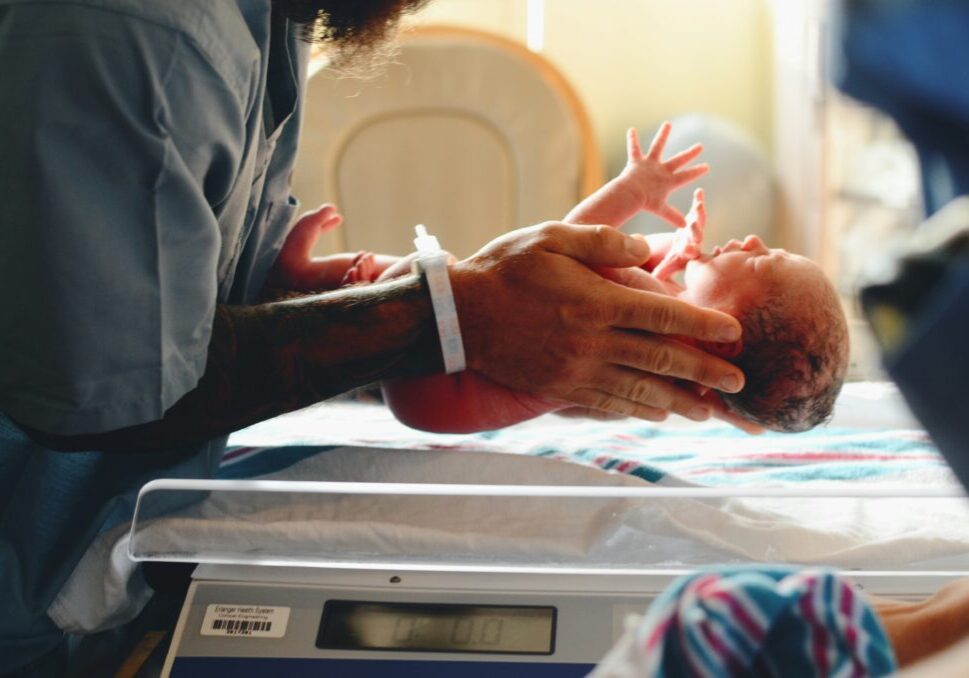Babies in Louisiana are twice as likely to die before their first birthday as their counterparts in other states, and the state’s infant mortality rate is among the highest in the developed world. Things aren’t better for mothers, who also die preventable deaths at higher rates than in the rest of the country. The Advocate’s Andrea Gallo has an in-depth look at Louisiana’s shameful infant mortality rate, which disproportionately affects Black families in the Pelican State.
In the decade before the pandemic, Louisiana’s infants were 65% more likely to die from being born too early or too small than babies in the rest of the country, an analysis by The Times-Picayune | The Advocate of data from the federal Centers for Disease Control and Prevention shows. About 458 babies would still be alive had Louisiana had the same rate as the rest of the country during that time. By 2020, Louisiana infants were dying at nearly twice the rate of those in other states, a disparity that cost about 47 lives that year. The toll is bleak across all demographics, but Black people feel a disparate impact.
While state lawmakers took modest steps to improve birth outcomes during the recently concluded legislative session, much more should be done.
“People think of this crisis as something that’s happening when people are pregnant, but this crisis manifests long before pregnancy starts,” said [Frankie ] Robertson, whose daughter was born at 28 weeks. Louisiana simply does not provide enough support for families, she said. Too many employers do not offer paid maternity leave, too many jobs do not pay a living wage and too many families cannot find affordable child care, she said. The cumulative stress and combined effects of those problems show in the state’s pregnancy outcomes, she said.
The latest on the Medicaid unwind
Louisiana has kicked 50,600 people out of its Medicaid program as part of a massive disenrollment process sparked by the end of pandemic-era coverage protections. Nearly three-fourths of these people lost their health coverage for procedural reasons, not because they were ineligible. The state budgeted nearly $200 million to manage the disenrollment. But in a state that relies heavily on “snail mail” to process renewals, and where frequent natural disasters often create displacement, hundreds of thousands of citizens remain at risk of losing their health coverage even if they’re still eligible. The Louisiana Illuminator’s Julie O’Donoghue reports:
Advocates still have concerns it won’t be enough to keep people from falling through the cracks. A lot of people who are poor experienced upheaval during the COVID-19 pandemic. Multiple hurricanes also hit Louisiana between 2020 and 2023, causing people to move. “That has always been our concern,” said Jan Moller, with the Louisiana Budget Project, a left-leaning think tank that studies policy affecting low-income families. “People live chaotic lives and a lot of people’s lives have changed dramatically since the beginning of the pandemic.”
ICYMI: The loss of coverage could spell disaster for people who rely on Medicaid to get the healthcare they need. A new report by the Louisiana Budget Project explains how we got here—and what we can do to help minimize the looming coverage cliff. It also contains resources in English, Spanish and Vietnamese that people can use to ensure they do not lose health coverage even though they are still eligible.
Fighting hunger in public schools
As summer winds down and Louisiana children return to school, many will be eligible for free meals because of legislation that advanced during the spring legislative session. Rep. Kyle Green’s Act 305 provides free breakfast and lunch for all public school students who are in the reduced-price lunch program. The Shreveport Times’ Greg Hilburn reports on the benefits of ensuring children are not trying to learn on an empty stomach.
The new law covers about 7,000 children who currently are eligible for reduced-price breakfast and lunch and will cost the state about $859,000. … Green credited advocates like the Louisiana Budget Project for helping him make the case for his bill and for colleagues in the House and Senate who helped him get the legislation across the finish line before the clock ran out on the session. “Something like this gives me hope and energy to keep working hard for wins for those who need it most,” Green said.
The Advocate on pet projects
The Louisiana Legislature missed critical opportunities during the spring lawmaking session to ensure that more residents benefited from the state’s growing economy and the revenues it produced. With record amounts of revenue at their disposal, state policymakers failed to give public school teachers a permanent pay raise, refused to pass legislation to guarantee paid family and medical leave for most workers and – once again – spurned efforts to establish a minimum wage. But lawmakers did take advantage of the budget largess by prioritizing pet projects for their own districts. An Advocate editorial explains the plethora of “waste” in the recently passed state budget.
While some good things were done in this year’s legislative session, PAR reported, “lawmakers wasted tens of millions on favored projects for their districts that don’t represent state priorities. They continued unnecessary giveaways through tax break programs with uncertainty about their long-term impact on the state treasury.” … The next governor, who will take office in January from the term-limited incumbent, will have to decide with legislative leaders which projects included in the bloated list will actually go forward.
Number of the Day
$905 – How much more Louisiana drivers with poor credit pay for annual car insurance policies than drivers with a DWI and “excellent” credit. Louisiana allows insurance companies to use non-driving factors, such as credit scores, to determine premium costs. (Source: Consumer Federation of America)
